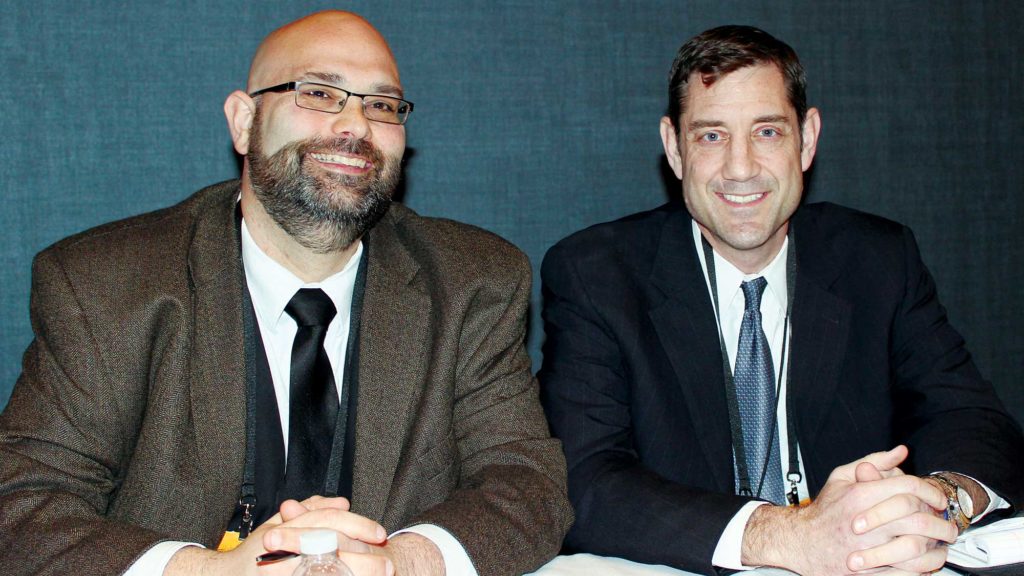
Federal officials are still trying to determine just how many minutes or hours a day it takes for direct care staff to perform tasks key to nursing home quality, a Centers for Medicare & Medicaid Services official said Wednesday.
Jean Moody-Williams, deputy director of the CMS Center for Clinical Standards & Quality, said data related to time requirements “is still being collected and analyzed,” although she described a broader study related to creation of a nursing home staffing minimum as being complete.
Moody-Williams’ comments came during a CMS Nursing Home Stakeholder Call Wednesday afternoon, during which officials also outlined critical changes in operations connected to the end of the public health emergency.
The staffing rule study included a literature review, nursing home site visits and qualitative and costs analyses, Moody-Williams reminded the audience. Almost 12 months after federal officials said they would take a year to explore a new possible federal staffing standard, providers are anxiously awaiting the release of a CMS proposal.
“The final report includes recommendations on potential barriers to, and unintended consequences of, implementing recommendations and also some of the cost implications [of a minimum staffing rule],” Moody-Williams said. “We are currently reviewing it to determine what policies will come from that. … We will keep you posted on the progress that we’re making.”
Key dates for COVID waivers, rules explained
Evan Shulman, CMS director of the division of nursing homes, spoke at length about several nursing home waivers that are set to expire with the end of the public health emergency, as well as some rules that would outlast the PHE.
He reminded providers that all Section 1135 waivers would end on May 11. There will be no additional exceptions or waivers granted to facilities in specific areas with high needs or outsized COVID impacts at that time, he said.
That warning specifically applies to waivers that are in place for temporary nurse aides in as many as 18 states, as well as among some individual providers that previously demonstrated “exceptional barriers” to certification. Shulman made clear that when the PHE ends, those aides will have only until Sept. 10 (four months) to get trained and certified.
As for the three-day stay waiver, widely embraced by nursing homes because they could more easily receive referrals for skilled care during the pandemic, it too will end May 11.
CMS SNF team lead John Kane said any Part A stay that starts on or before May 11 could still qualify for full coverage. But after the switch flips on May 12, a three-day hospital stay would be required for providers to be paid for skilled care. Kane also noted that a waiver that allowed patients to receive an extended benefit period without a 60-day wellness period would expire after May 11, but that a new period started before May 12 would qualify for the full extended coverage.
Kane said many providers had contacted CMS about doing away with the three-day stay permanently, but he urged those people to contact Congress since only it has the authority to change such statutory requirements.
Shulman, meanwhile, reiterated that some SNF rules were enacted separate from the public health emergency, meaning some critical infection control and prevention requirements will stay in place after May 11. Those include:
- The COVID vaccine mandate for healthcare workers. Because it was established through an interim final rule, the requirement for a two-dose series of the initial shot can be required through most of 2024 without any additional action by CMS.
- Education about and access to COVID-19 boosters for residents and staff. This requirement lasts through May 2024.
- COVID data reporting to the National Health Safety Network. A rule requiring information to be submitted does not expire until Dec. 31, 2024, although Shulman said his agency was working with the Centers for Disease Control and Prevention to limit reporting burdens.
- Specific COVID testing regulations that started in August 2020, prior to CDC national standards, will expire with the PHE on May 11. But Shulman noted that nursing homes “are still required to have an effective infection prevention and control program that follows accepted national standards. In other words, nursing homes are still going to be expected to test appropriately for COVID-19 … past the end of the PHE.”
- Medicare immunizers’ ability to bill Medicare Part B directly for vaccines administered in nursing homes. Enforcement discretion around that change ends June 30, and at that point, nursing homes must resume billing.




